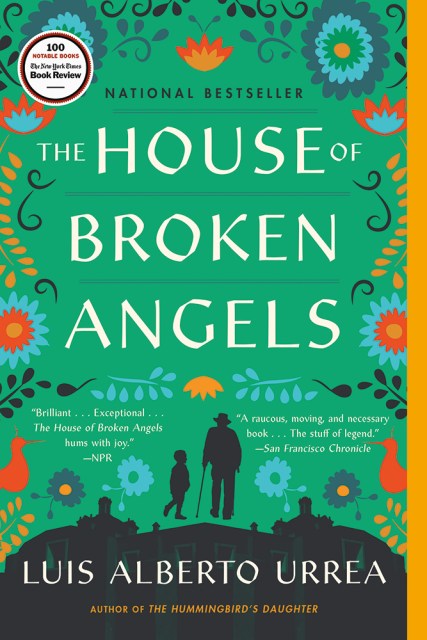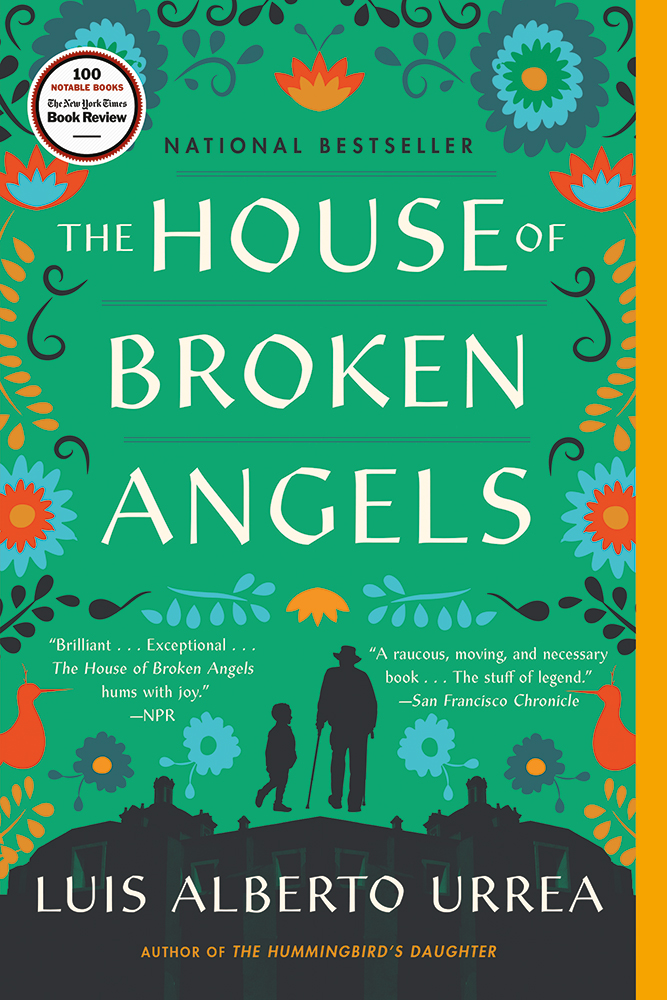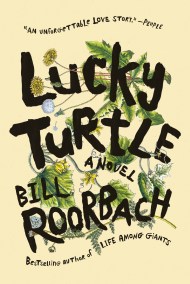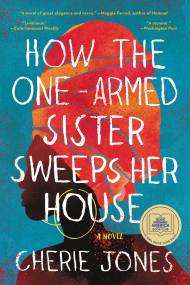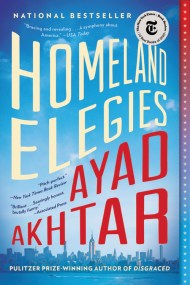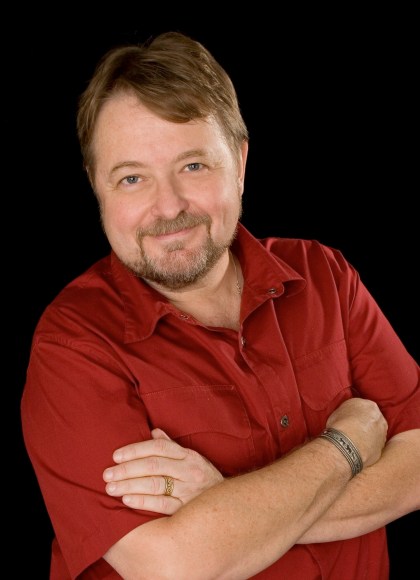By clicking “Accept,” you agree to the use of cookies and similar technologies on your device as set forth in our Cookie Policy and our Privacy Policy. Please note that certain cookies are essential for this website to function properly and do not require user consent to be deployed.
The House of Broken Angels
Contributors
Formats and Prices
- On Sale
- Mar 5, 2019
- Page Count
- 336 pages
- Publisher
- Back Bay Books
- ISBN-13
- 9780316154895
Price
$18.99Price
$24.99 CADFormat
Format:
- Trade Paperback $18.99 $24.99 CAD
- ebook $13.99 $17.99 CAD
- Audiobook Download (Unabridged)
This item is a preorder. Your payment method will be charged immediately, and the product is expected to ship on or around March 5, 2019. This date is subject to change due to shipping delays beyond our control.
Buy from Other Retailers:
In this “raucous, moving, and necessary” story by a Pulitzer Prize finalist (San Francisco Chronicle), the De La Cruzes, a family on the Mexican-American border, celebrate two of their most beloved relatives during a joyous and bittersweet weekend.
“All we do, mija, is love. Love is the answer. Nothing stops it. Not borders. Not death.”
In his final days, beloved and ailing patriarch Miguel Angel de La Cruz, affectionately called Big Angel, has summoned his entire clan for one last legendary birthday party. But as the party approaches, his mother, nearly one hundred, dies, transforming the weekend into a farewell doubleheader. Among the guests is Big Angel’s half brother, known as Little Angel, who must reckon with the truth that although he shares a father with his siblings, he has not, as a half gringo, shared a life.
Across two bittersweet days in their San Diego neighborhood, the revelers mingle among the palm trees and cacti, celebrating the lives of Big Angel and his mother, and recounting the many inspiring tales that have passed into family lore, the acts both ordinary and heroic that brought these citizens to a fraught and sublime country and allowed them to flourish in the land they have come to call home.
Teeming with brilliance and humor, authentic at every turn, The House of Broken Angels is Luis Alberto Urrea at his best, and cements his reputation as a storyteller of the first rank.
“Epic . . . Rambunctious . . . Highly entertaining.” — New York Times Book Review“Intimate and touching . . . the stuff of legend.” — San Francisco Chronicle“An immensely charming and moving tale.” — Boston GlobeNational Bestseller and National Book Critics Circle Award finalistA New York Times Notable BookOne of the Best Books of the Year from National Public Radio, American Library Association, San Francisco Chronicle, BookPage, Newsday, BuzzFeed, Kirkus, St. Louis Post-Dispatch, Literary Hub
“All we do, mija, is love. Love is the answer. Nothing stops it. Not borders. Not death.”
In his final days, beloved and ailing patriarch Miguel Angel de La Cruz, affectionately called Big Angel, has summoned his entire clan for one last legendary birthday party. But as the party approaches, his mother, nearly one hundred, dies, transforming the weekend into a farewell doubleheader. Among the guests is Big Angel’s half brother, known as Little Angel, who must reckon with the truth that although he shares a father with his siblings, he has not, as a half gringo, shared a life.
Across two bittersweet days in their San Diego neighborhood, the revelers mingle among the palm trees and cacti, celebrating the lives of Big Angel and his mother, and recounting the many inspiring tales that have passed into family lore, the acts both ordinary and heroic that brought these citizens to a fraught and sublime country and allowed them to flourish in the land they have come to call home.
Teeming with brilliance and humor, authentic at every turn, The House of Broken Angels is Luis Alberto Urrea at his best, and cements his reputation as a storyteller of the first rank.
“Epic . . . Rambunctious . . . Highly entertaining.” — New York Times Book Review“Intimate and touching . . . the stuff of legend.” — San Francisco Chronicle“An immensely charming and moving tale.” — Boston GlobeNational Bestseller and National Book Critics Circle Award finalistA New York Times Notable BookOne of the Best Books of the Year from National Public Radio, American Library Association, San Francisco Chronicle, BookPage, Newsday, BuzzFeed, Kirkus, St. Louis Post-Dispatch, Literary Hub
Genre:
-
"Epic . . . Rambunctious . . . Highly entertaining . . . Sorrowful and funny . . . Cheerfully profane . . .The quips and jokes come fast through a poignant novel that is very much about time itself . . . A powerful rendering of a Mexican-American family that is also an American family."Viet Thanh Nguyen, New York Times Book Review (cover review)
-
"A raucous, moving, and necessary book...Intimate and touching...The stuff of legend...There's deep heart and tenderness in this novel.The House of Broken Angels is, at its most political, a border story...Chillingly accurate, they're heartbreaking, and infuriating."Alexis Burling, San Francisco Chronicle
-
"An immensely charming and moving tale...Urrea deftly inhabits many points of view, dreaming up an internal voice for each...It is a testament to his swift and lucid characterizations that one does not want to leave this party...A novel like The House of Broken Angels is a radical act. It is a big, epic storyabout how hard it is to love with all of your heart, and all of your family--regardless of which side of the border they live on."John Freeman, Boston Globe
-
"The House of Broken Angels is a big, sprawling, messy, sexy, raucous house party of a book, a pan-generational family saga with an enormous, bounding heart, a poetic delivery, and plenty of swagger...More than once while reading the novel, I thought of James Joyce's 'The Dead,' another kaleidoscopic fable of family life that skillfully mixes perspectives...The House of Broken Angels isa book about celebration that is, itself, a celebration."Michael Lindgren, Washington Post
-
"Urrea's gifts as a storyteller are prodigious...The book's spirit is irrepressibly high. Even in its saddest moments, The House of Broken Angels hums with joy...The noveloverflows with the pleasure of family...And all that vulnerability, combined with humor and celebration and Urrea's vivid prose, will crack you open."Lily Meyer, NPR
-
"The House of Broken Angels is a big, messy, warmhearted epic, over-flowing with color and character...With bird's eye agility, Urrea moves between borders and generations...His narrative is imbued with the timeless texture of every immigrant's hope's and dreams...Generous to the last breath."Leah Greenblatt, Entertainment Weekly
-
"A whirling fiesta of a book...Filled with intelligence and wickedly funny cultural commentary, the story builds to an electrifying finale."Marion Winik, People
-
"Humane and often laugh-out-loud hilarious."O, The Oprah Magazine
-
"A sprawling yet intimate tale...rich in detail and images...It's the sort of book you might read, as I did, in one long, breathless push."Moira Macdonald, Seattle Times
-
"Generous and big-hearted...The House of Broken Angels soars on wings of memory and imagination into the 'imperfect and glorious, messy and hilarious' tragedy and comedy of family history."Diana Postlethwaite, Minneapolis Star-Tribune
-
"Urrea spins some wonderful phrases as he leads us through his throng of characters...You couldn't ask for a more vivid sense of place either, whether you're talking physical surroundings or the way people think and speak. There's a telling moment when Little Angel ponders freeway traffic 'rushing past the invisible barrio, unaware of the lives up here, the little houses, all these unknowable stories.' The House of Broken Angels makes them known."Michael Upchurch, Chicago Tribune
-
"Urrea's touch is sure, his exuberance carries you through...Everything is mined for a humor that rings raw and true...Urrea is a generous writer, not just in his approach to his craft--with sentences piling up in fat swaths of conversation, tall stories, tragedies, color--but in the broader sense of what he feels necessary to capture about life itself...It is one of the miracles of literature that you adopt families not your own, places that are alien to your experience, into your own memories. The de La Cruzes will feel to many readers like their own relatives: exasperating, dysfunctional, riven by loss, full of juice, and ultimately real."Nilanjana Roy, Financial Times
-
"Bestselling novelist Urrea celebrates family as he digs deep into the small moments and big questions of life. 'Love is the answer,' he writes. 'Nothing stops it. Not borders. Not death.'"Jane Ciabattari, BBC
-
"The story of the de La Cruzes is the quintessential American story...It takes us into a world we have not known, while reflecting back on the hopes and dreams of our own families."Adam Morgan, Chicago Review of Books
-
"Clamoring and joyful...A story of crossed borders: the U.S.-Mexico border, of course, across which the family immigrated years ago, but also the borders between versions of history and between life and death...Urrea's affection for his characters is contagious, and the reader feels as though she's been welcomed to the party...Big Angel proves himself courageous in the face of death. But above all, he is courageous in his love, and the novel is beautifully unapologetic in this affirmation...A brimming, expansive novel."Kirstin Valdez Quade, Newsday
-
"This brilliant (truly, like a multi-faceted gem) novel is intimate in its revelations of one beautifully complicated family, but epic in the way in which it portrays a myriad of human experiences...A novel that is explosive and empathetic, and a much-needed depiction of what life is like for this very American family, as it straddles different worlds and ways of being."Kristen Iversen, Nylon
-
"The kind of sweeping family saga you lose yourself in--big and warm, and rich with history and love and culture."Samantha Irby, Marie Claire
-
"Luis Alberto Urrea's new novel is an unforgettable family epic, a sweeping story that takes place over one weekend in San Diego in which a family unspools stories--legendary, mythic, and utterly entertaining--that have been passed down to them and which bring to life a vivid rendering of the Mexican-American immigrant experience in America."Caroline Rogers, Southern Living
-
"The House of Broken Angels is a love song to the Mexican-American family."Time
-
"Unfailingly personal and deeply poignant...a deft celebration of the Mexican-American family."Harper's Bazaar
-
"The Mexican American poet and storyteller weaves another great yarn."John Timpane, The Philadelphia Inquirer
-
"A novel about humanity and all its marvelous mess...The House of Broken Angels succeeds in its depiction of the pettiness and love that so peculiarly intertwine in families.In particular, the relationship between Big Angel and Little Angel is loving and fraught, heightened by the sense that they must get it all out in the open with too little time. Urrea has clearly written from the heart...His novel is an intimate tribute to the bonds we don't get to choose, but to which we owe everything."Grace Parazzoli, Santa Fe New Mexican
-
"Like the De la Cruz family, Urrea's writing is exuberant, unruly, and sometimes profane, filled with splashes of Spanglish and sensual imagery...The writing is political, too, as the author describes the often arbitrary cruelty of the border that has shaped the characters' lives...The author's humor does not diminish the daily horrors on America's border; it merely reveals the awfulness more clearly."Sarah Tory, High Country News
-
"What Urrea achieves in this sprawling and sensual novel is remarkable. Every paragraph holds its own; but together they tell the whole messy story of a family that, at its essence, mirrors your own."Sarah Bagby, KMUW
-
"Engrossing and indispensable...This is a tender, passionate, loving and violent book, just like la familia...They have their squabbles and secrets, their grudges and crushes, their rivalries and resentments. But for every moment of sorrow, there are two moments of joy; for every fear, a glimmer of potential...This sincere family epic should be read all over our land of immigrants."Cory Oldweiler, amNewYork
-
"Luis Alberto Urrea's The House of Broken Angels is a vivid portrait of one Mexican-American family in San Diego and the complexities of immigration and heritage. The patriarch of the De La Cruz family decides to throw a huge birthday party in the last days of his life, but his mother also dies in the days leading up to the event, leading to a bittersweet celebration of both of their lives and their family's legacy."Jarry Lee, Buzzfeed
-
"A fascinating look at culture, family, and the roots that ground us to one another; Luis Alberto Urrea's The House of Broken Angels may be set around a 100-year-old's birthday party, but it reaches into every area of modern American life."PopSugar
-
"Urrea dives head-first into the hearts and minds of some truly unforgettable characters. If you love a book that draws you in with masterful language and deep understanding of the human spirit, you're certainly in luck."Melissa Ragsdale, Bustle
-
"Boisterous . . . Fun . . . Although underscored by tragedy and strife, this novel is a story of hope and love-for all broken angels."Yvette Benavides, San Antonio Express-News
-
"The House of Broken Angels will appeal to anybody...A tender, sprawling, funny, violent family saga."David Steinberg, Albuquerque Journal
-
"Two paragraph is and I was unabashedly in love with Luis Alberto Urrea's masterful and richly textured new novel, The House of Broken Angel, about this family that manages to be both extraordinary and completely ordinary...Few characters are as alive as Big Angel, and few stories have resonated with me as much as this one."Ashley Riggleston, The Free Lance-Star
-
"Luis Alberto Urrea has crafted a story that is teeming with family love, secrets, jealousies, alliances, and surprises that make it burst with life on every page. He uses a large cast of characters to portray the breadth of the de La Cruz clan and also make them universal. Change the names, locations, language, and in-jokes, and they could be Italian, Jewish, Irish, or any other group of immigrants that has struggled to combine elements of their original home with their new one . . . The House of Broken Angels can be a multigenerational, multinational dwelling anywhere. Get a copy for your house."Dale Singer, St. Louis Post-Dispatch
-
"Each of the De la Cruzes is in some way a performer who shows extraordinary courage and vulnerability...Big Angel is grateful for his wife, for his family, and for the power of memory, and what an incredible story he tells...The House of Broken Angels is full of life and spirit and joy. At is heart this is a novel about being alive."Luba Sawczyn, Burlington Times-News
-
"A beautiful and heartbreaking family story."HelloGiggles
-
"A big-hearted family epic that radiates with the joy of telling stories...The vibe of the novel isn't an elegy for the end of a clan that's lost its sense of identity, but a tribute to a family that has acquired the freedom to make multiple identities for itself...For a novel about death, there's a lot of life in it."Mark Athitakis, Barnes & Noble Book Review
-
"This, the most personal book by the great American novelist Luis Alberto Urrea, is one of the most vivid and engrossing family epics of the last twenty years."Dave Eggers, National Book Award finalist and New York Times bestselling author of The Circle
-
"Luis Urrea is a mythmaker with the heart of a poet. He is that paradox, a gentle, kind writer who can hurt you deeply with honesty and beauty. I'm glad we have him."Neil Gaiman, New York Times bestselling author of The Ocean at the End of the Lane
-
"The House of Broken Angels has everything we demand of a great novel--sweep, ambition, generosity, myth, intimacy, and, above all, humanity. Luis Alberto Urrea just gets better and better."Richard Russo, Pulitzer Prize-winning and New York Times bestselling author of Everybody's Fool
-
"Luis Alberto Urrea is a master storyteller, and he delivers a masterwork with The House of Broken Angels. Stories spin on stories. There are lives intimately depicted and fully realized; losses redeemed by love; a dazzling display of narrative fireworks, each little scene a gem; and larger-than-life characters across two borders who cross all borders and become ours. We enter this house of broken angels, and through the magical power of Urrea's writing, we become healed and whole. And we laugh and tear up and shake our heads in wonder all the way to the ending of a book we don't want to end. Urrea delivers on every page. ¡Dios santo! What a storyteller! Bless his capacious heart!"Julia Alvarez, author of How the Garcia Girls Lost Their Accents
-
"Dizzying...Urrea writes in exhilarating but controlled slashes, wielding a machete that cuts like a scalpel. Every page comes alive with scent, taste, and, perhaps most lovingly, touch...The House of Broken Angels is about a quintessentially American family, a family that came north looking for heaven but found that 'heaven was a blueprint.' But it's also about what it means to look back on a life and, with total honesty, take stock."Omar El Akkad, Bookpage
-
"Exuberant...Urrea has written a vital, vibrant book about the immigrant experience that is a messy celebration of life's common joys and sorrows."Publishers Weekly
-
"A family saga that asks what it means to be American . . . The novel is knowing and intimate, funny and tragic at once. The de la Cruzes are a big clan, messy and complex. The members have competing agendas and secrets, but at the same time, all share a commitment to family. 'All we do, mija,' Big Angel tells his daughter, 'is love. Love is the answer. Nothing stops it. Not borders. Not death.' It's impossible to read that line (or, for that matter, this novel) without reflecting on the current American moment, in which Mexican American families such as the de la Cruzes are often vilified. But if Urrea's novel is anything, it is an American tale. It is a celebration, although Urrea is no sentimentalist; he knows the territory in which his narrative unfolds. There is tragedy here and danger; these are real people, living in the real world. Still, even when that world intrudes, it only heightens the strength, the resilience, of the family . . . Even in death, Urrea shows, we never lose our connection to one another, which is the point of this deft and moving book."Kirkus Reviews (starred review)
-
"A warmly hilarious novel. . . . Rollicking chaos, masterful storytelling and deep affection for its countless characters."Colette Bancroft, Tampa Bay Times
-
"Luis Alberto Urrea is one of America's foremost chroniclers of the messy, swirling, often embarrassing chaos that we politely call 'family.'...The House of Broken Angels [is] a dizzying, powerful book that wraps its arms around all the emotion and chaos of a large family."Kirkus
-
"Urrea once again captures the anxieties and joys of a family balanced on the borders between generations, El Norte and Mexico, and life and death. A quintessentially American story."Booklist
-
"Urrea masterfully crafts a portrait of a sprawling family living in different worlds...His newest is an honest and moving portrayal of how families fall apart and come together during difficult times."Stephanie Sendaula, Library Journal
-
"Richly rendered and emotionally satisfying...Urrea's immense literary imagination never ceases to work wonders. In The House of Broken Angels, his style of magical realism creates an unforgettable alchemy, transforming the struggles of a multigenerational Latinx family into a moving mythos of kinship...Extraordinary."Shelf Awareness
Newsletter Signup
By clicking ‘Sign Up,’ I acknowledge that I have read and agree to Hachette Book Group’s Privacy Policy and Terms of Use
